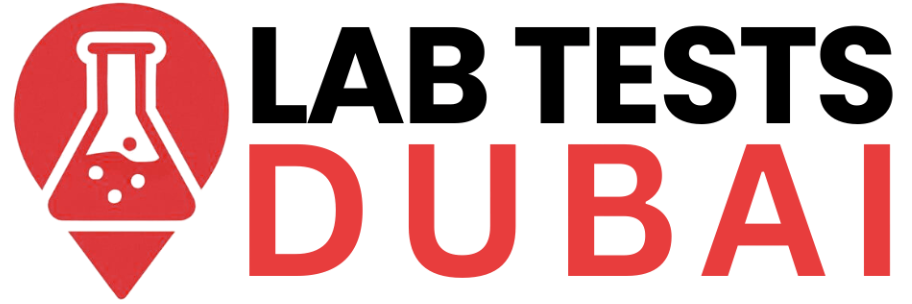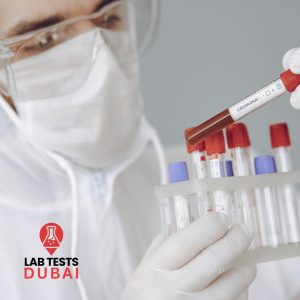
C-Peptide Test – Accurate Diabetes & Insulin Function Analysis
350,00 د.إ
The C-Peptide Lab Test measures C-peptide levels in the blood to assess insulin production and pancreatic function. It helps differentiate between type 1 and type 2 diabetes, evaluate insulin resistance, and monitor conditions like hypoglycemia and pancreatic tumors.
Sample Type : Serum
Methodology : Chemiluminescence
TAT : 3 Days
Description
C-Peptide Test – Accurate Diabetes & Insulin Function Analysis
The C-Peptide Test from Lab Tests Dubai is a critical blood test that measures C-peptide levels—a byproduct released when your pancreas produces insulin. Because C-peptide is secreted in equal amounts to insulin, it serves as a reliable marker of your body’s natural insulin production.
This test is essential for:
- Differentiating between Type 1 and Type 2 diabetes
- Evaluating pancreatic beta-cell function
- Diagnosing the cause of unexplained hypoglycemia (low blood sugar)
- Detecting insulinoma (rare insulin-producing tumor)
- Monitoring residual insulin production in long-term diabetics
- Assessing insulin resistance in prediabetes or metabolic syndrome
Using high-sensitivity chemiluminescence technology, this serum-based test delivers accurate results within just 3 days, helping endocrinologists and family doctors tailor treatment plans based on your body’s true insulin status.
Available with home blood collection, Lab Tests Dubai ensures fast, accurate, and stress-free testing—so you can understand your diabetes type and treatment needs.
Why You Need This Test
If you’re on insulin but unsure if your pancreas still produces insulin—or if you have frequent low blood sugar episodes—this test could reveal the true cause behind your symptoms.
You need the C-Peptide Test if:
- You’ve been diagnosed with diabetes but don’t know if it’s Type 1 or Type 2
- You’re on insulin therapy and want to assess natural insulin production
- You experience dizziness, sweating, or confusion (signs of hypoglycemia)
- Your blood sugar is hard to control despite treatment
- You have insulin resistance or metabolic syndrome
- You’re being evaluated for pancreatic tumors (insulinoma)
- You’re in diabetes remission (e.g., post-bariatric surgery) and want to monitor recovery
This test helps:
- Confirm Type 1 diabetes (very low C-peptide)
- Identify Type 2 or prediabetes (normal/high C-peptide)
- Rule out factitious hypoglycemia (e.g., insulin abuse)
- Guide treatment decisions (e.g., insulin vs. oral meds)
Early testing = personalized diabetes care and better control.
Symptoms That Indicate This Test
Consider the C-Peptide Test if you experience:
✅ For Diabetes Evaluation:
- Frequent urination, excessive thirst, or unexplained weight loss
- High HbA1c with unclear diabetes type
- Need for insulin early in diagnosis (possible Type 1)
✅ For Hypoglycemia:
- Recurrent low blood sugar without cause
- Sweating, shaking, confusion, or fainting
- Symptoms improve with food
✅ For Metabolic & Pancreatic Health:
- Insulin resistance (acanthosis nigricans, PCOS)
- Unexplained weight gain or fatigue
- Family history of diabetes or pancreatic disease
These signs may point to abnormal insulin production—and this test helps start the diagnostic journey.
Natural Production: How C-Peptide Reveals Insulin Activity
When your pancreas produces proinsulin, it splits into:
- Insulin
- C-peptide (connecting peptide)
Both are released in equimolar amounts into the bloodstream. However:
- Insulin is rapidly cleared by the liver (half-life: 5–10 minutes)
- C-peptide lasts longer in blood (half-life: 20–30 minutes)
This makes C-peptide a more stable marker of endogenous insulin production—especially useful when:
- You’re on exogenous insulin (injected insulin doesn’t contain C-peptide)
- You have liver or kidney disease (affects insulin clearance)
Typical C-Peptide Levels:
- Normal (fasting): 0.8–3.1 ng/mL
- Low: Suggests Type 1 diabetes or advanced Type 2
- High: Indicates insulin resistance or hyperinsulinemia
- Very High with Low Glucose: May signal insulinoma
This test can be done fasting or post-glucose (stimulated) for more insight.
What Happens If Untreated? Risks of Misdiagnosed Insulin Dysfunction
Ignoring abnormal C-peptide levels can lead to:
⚠️ Misdiagnosis of Diabetes Type – leading to wrong treatment
⚠️ Delayed Insulin Use in Type 1 – risk of DKA (diabetic ketoacidosis)
⚠️ Unnecessary Insulin in Type 2 – if insulin resistance is the main issue
⚠️ Missed Insulinoma – causing dangerous hypoglycemia
⚠️ Progression to Type 2 Diabetes – if insulin resistance is ignored
The good news? Correct diagnosis leads to better outcomes with:
- Appropriate medication (insulin, metformin, GLP-1 agonists)
- Lifestyle changes (diet, exercise)
- Regular monitoring of beta-cell function
Early testing = precise treatment and long-term health.
How to Prepare for the Test
To ensure accurate results:
✅ Fasting is required – 8–12 hours before the test (water only)
✅ Continue your regular medications unless instructed otherwise
✅ Avoid sugar, caffeine, or exercise before the test
✅ Inform your doctor of:
- Diabetes medications (especially insulin)
- History of hypoglycemia
- Recent illnesses or steroid use
A serum blood sample is collected via standard draw—available at our labs or via home collection.
Test Overview: Chemiluminescence Method
Interpretation:
- <0.5 ng/mL → Very low (consistent with Type 1 diabetes)
- 0.8–3.1 ng/mL → Normal (Type 2 or prediabetes)
- >3.1 ng/mL → High (insulin resistance, metabolic syndrome)
- High C-peptide + Low Glucose → Suspect insulinoma
Note: Often paired with glucose, HbA1c, and insulin levels for full metabolic profile.
Benefits of the C-Peptide Blood Test
🔹 Accurate Diabetes Typing
Stop guessing—know if you have Type 1, Type 2, or LADA (Latent Autoimmune Diabetes in Adults).
🔹 Hypoglycemia Clarity
Identify if low blood sugar is due to over-insulinization or a tumor.
🔹 Treatment Guidance
Determine if you need insulin or can manage with oral meds.
🔹 Monitor Disease Progression
Track beta-cell decline in long-term diabetes.
🔹 Peace of Mind
Understand your body’s true insulin status.
If you’re tired of confusing diagnoses, unstable blood sugar, or unexplained lows, the C-Peptide Testgives you the answers you need in just 3 days.




Reviews
There are no reviews yet.